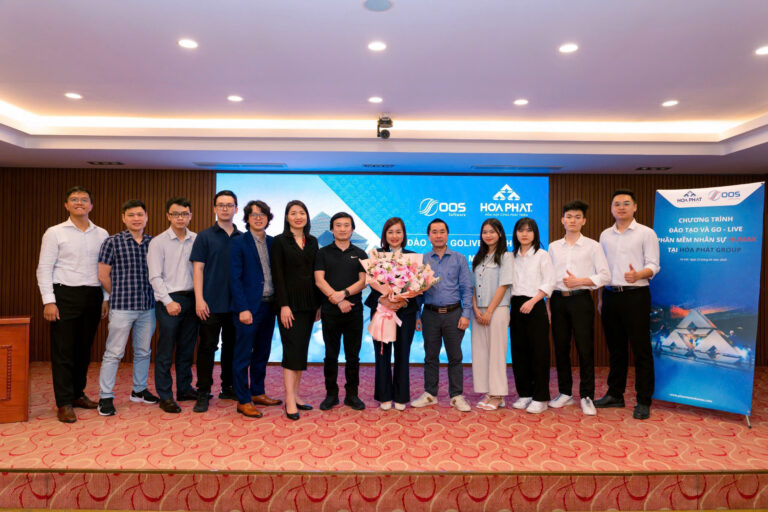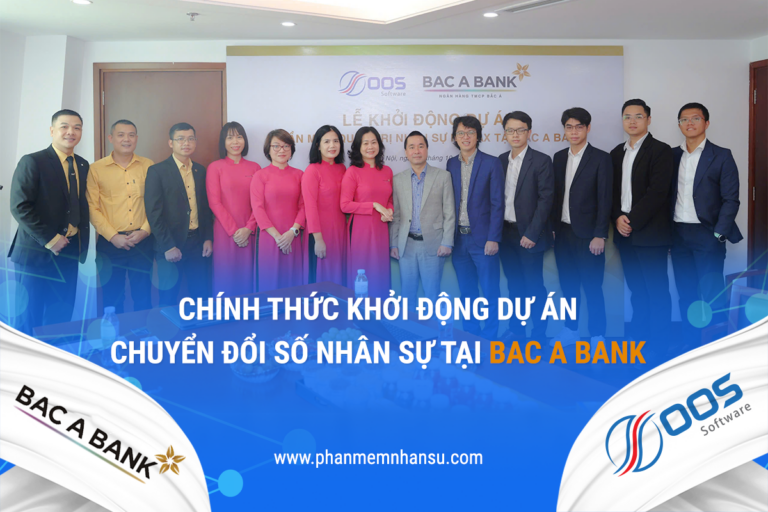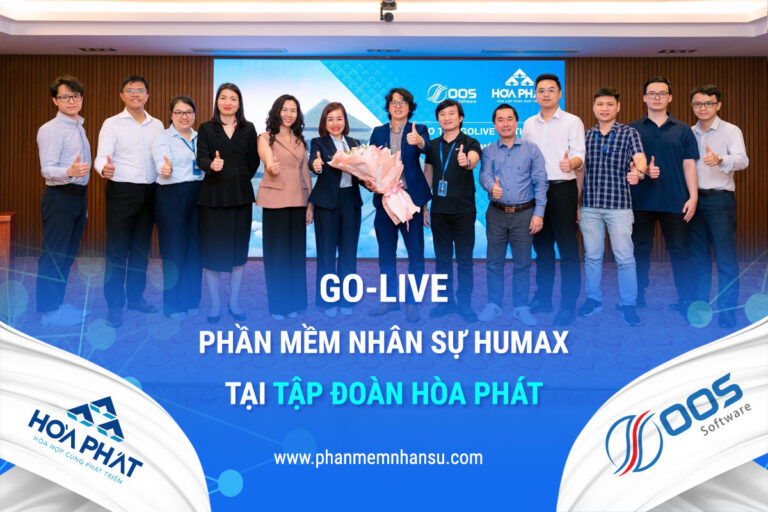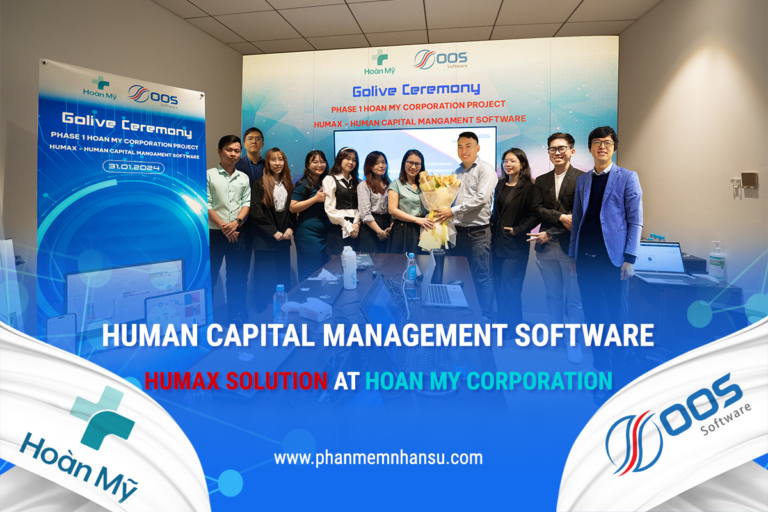Businesses today face many challenges in finding candidates, especially candidates for important positions. Furthermore, candidates are getting younger and more sensitive, they proactively research information and culture of the company before applying.
Without a recruitment branding platform, businesses will easily be overwhelmed by hundreds of job postings every day. Building recruitment branding, therefore, has been a global trend.
This is considered a foundation for employers to find suitable candidates and retain talent. Everyone wants to work for a company with a strong employer brand. Entering the names of businesses like Google, Facebook, Microsoft, Viettel, PwC, Delloitte... on your resume is like a stamp of class. any individual.
This is the time when companies need to seriously plan for their developmentrecruitment brand as a systematic activity that needs attention.
What are Employer Brand and Employer Branding?
Employer Brand is the brand of the company as an employer instead of the reputation or brand of a business in the market.
Employer Branding is all the activities businesses have been doing (whether intentional or unintentional) to promote their unique image to job seekers and candidates. potential member.
In essence, the important thing here is to distinguish between "accidental" and "intentional". While companies can strategize about their workplace, their employer brand can also be influenced by factors beyond their control. In fact, a company's recruitment brand is not simply the result of its promotional strategy but is also formed through the actual experiences of both candidates and employees.
According to Harvard Business Review, in the period 2004 to 2008, employer branding received special attention when large corporations such as Unilever or P&G implemented branding programs as employers. in the recruitment market, just as they did to build their company brand in the traditional consumer market. This stems from the increasingly fierce recruitment market, more and more businesses participating in the market, and attracting talent becomes a difficult problem. In today's developed market, both Employer Brand and Employer Branding are still topics of great interest from businesses.
What are the similarities and differences between recruitment branding and corporate branding?
There are often misunderstandings between employer brand and company brand. However, besides the similarities, these two concepts have differences that recruitment and human resources workers need to clearly understand to be able to easily make development decisions:
- Recruitment brand, from the employer's perspective, refers to the impression of the candidate's business, or the person looking for a job. For example: What is the recruitment process like at the company? Was the experience applying to the company positive? What is attractive about corporate culture?…
- Company brand refers to the general impression of people, not just candidates, maybe customers, partners, consumers, etc. about the business.
Although they are two different definitions, Employer Brand and Company Brand still have influences on each other. Possessing a strong company brand will be the first important foundation to build a strong recruitment brand. Everyone wants to work for a famous company with a good name in the labor market. Having company names like Google, Amazon, Unilever or Coca Cola appear on a personal profile is like a "quality stamp" for any employee.
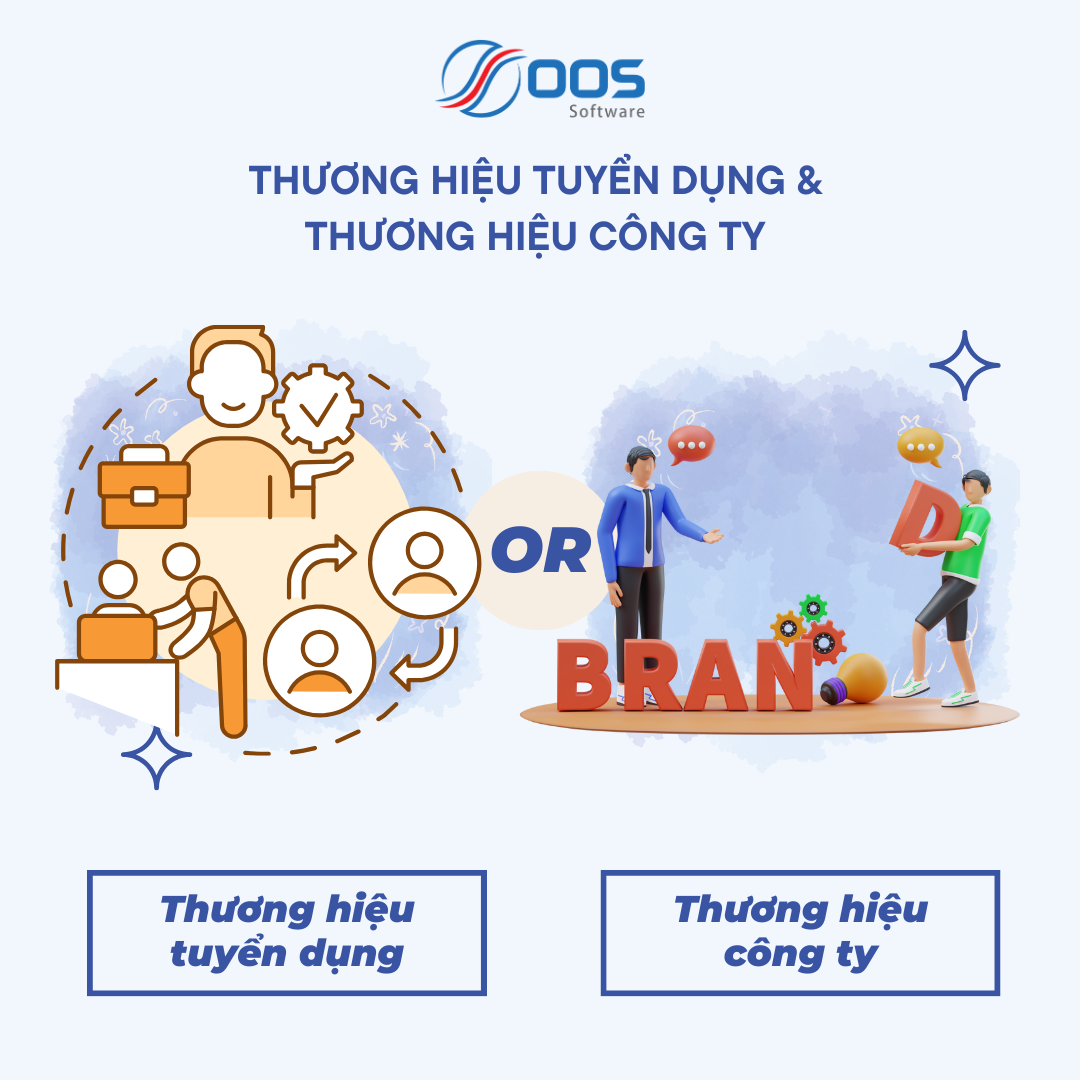
However, a strong company brand is just the foundation, not a direct deciding factor in the success of an attractive employer brand (in the long run). The target audience of the employer brand is candidates - people who are looking for a job and employees - people currently working at the business. They are not the same as any other customer who buys or uses a company's products or services. In addition to a reputable corporate brand, they have other needs that need to be met.
However, corporate branding and employer branding also have similarities and principles that apply to both. Whether the target audience is a customer or a candidate, businesses need to clearly understand audience insight to conduct positioning, communication, and then evaluate and measure effectiveness.
Why do businesses need to focus on building a recruitment brand?
A big challenge of the talent recruitment process is convincing candidates to feel interested in the opportunity to work at the business. Talented people always have many options at hand, even many job offers at good corporations without the need for an interview. At that time, creating a distinct position in the recruitment market is the highlight of the business.
Investing in employer branding not only helps businesses reduce costs in the recruitment and training process, but also enhances attractiveness to talents. Especially for small and medium-sized enterprises (SMEs), where salary competitiveness often poses unique challenges, investing in employer branding is an important step in attracting and retain talented employees. Smaller businesses should invest more in their employer brand.
Attract quality candidates, improve recruitment efficiency
The importance of recruitment brand is demonstrated through the ability to improve 3 important recruitment indicators: time to hire, cost per hire and quality of recruitment. (quality of hire).
According to survey by LinkedIn, 75% candidates will learn about the company's reputation and recruitment brand before applying. And if they are not satisfied with the information they find, 69% candidates will not apply, even if they are unemployed. Additionally, 83% employers say employer branding plays an important role in their ability to recruit talent.
Also in this survey, Companies with strong recruitment brands attract more quality candidates than 50%, recruit 1 to 2 times faster and reduce costs per recruitment by 50%.
Retain personnel
People often tend to want to express themselves in famous places, and be widely known. A good recruitment brand is like a branded shirt, an expensive piece of jewelry that the company gives to its employees. This is always considered an important factor to help maintain stability in staff size. When the company's recruitment brand is strong enough, each employee in the business can also be considered a media ambassador, helping to propagate the brand externally.
According to LinkedIn:
- 83% employees are likely to leave their current workplace if they receive a job offer from a more prestigious/reputable company.
- Employees at companies with strong employer brands have lower turnover rates after 6 months of initial employment compared to other competitors.
And the longer a business retains talented people, the more its investment costs in the recruitment and training process will be optimized.
Who is responsible for building the recruitment brand in the enterprise?
Normally, HR will be the first team we think of when talking about employer branding. And indeed, HR is the team responsible for building the recruitment brand at the enterprise. However, not everyone can choose the employer brand as an available part to demonstrate to candidates or job seekers. In fact, the employer brand is the true image of the business, it is not only created by the Human Resources department but also built from many different individuals in the organization:
- Founders or heads of businesses, CEOs and C-level executives: These are the people who build the strategic vision for the business and set the corporate values they want to strengthen. .
- Direct managers in departments: Main leaders, evaluate and train skills and operations as well as support the development of members of their team.
- HR team: Develop human resources policies and establish, strengthen, and introduce activities to tighten employee relationships within the company.
- Marketing and communications team: Responsible for producing and bringing images, stories, people, etc. of the business to the outside through media, press releases, or related events of the company. enterprise.
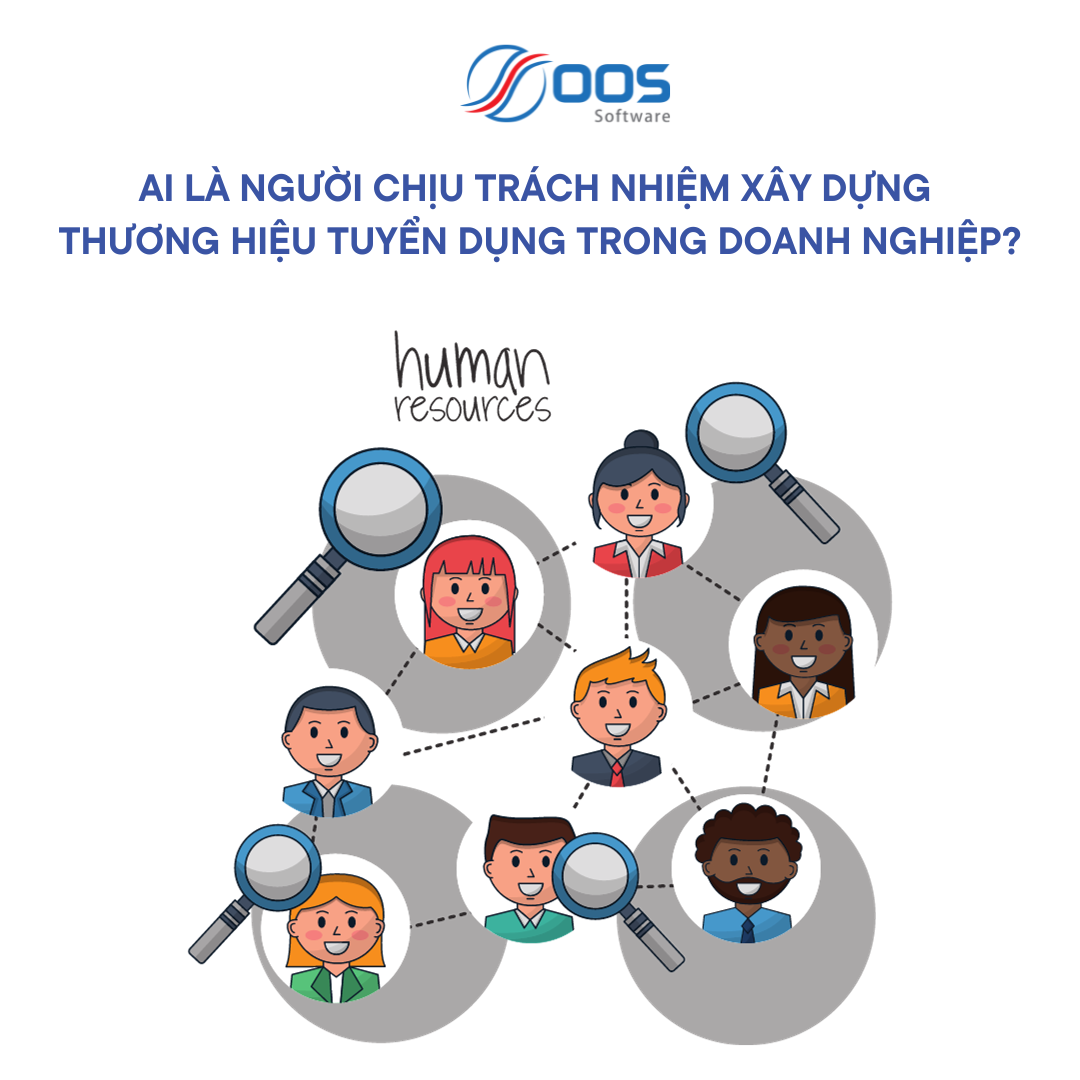
However, if each department operates or proposes ideas individually, this cannot create a strong recruitment brand for the business. To build a strong employer brand, everyone's coordination and working together is important.
Build a successful recruitment brand with 10 steps
Look at the current situation of the business
To build a positive and strong employer brand, human resource managers need to comprehensively evaluate the image of the current business. This includes evaluating leadership capacity, working environment, compensation policies, and corporate culture.
An overall view helps managers make the most accurate assessments and shape the direction for the next steps.
Clearly define EVP
The recruitment brand needs to convincingly show that the business is an ideal environment for candidates to stick and work. The Employer Value Proposition (EVP) index will be closely related to the characteristics of the work environment. Simplified, EVP is a collection of benefits that businesses provide to stimulate candidates to apply, while also motivating current staff to maintain long-term commitment and support the common goals of the company. enterprise.
Promote business image
Although words play an important role, images are much more effective in communication. According to research, up to 44% candidates said they are willing to interact with businesses more if they see images in the media.
The next problem is: what images should businesses use and how to achieve the highest efficiency? To ensure the desired effect, it is recommended to present some videos or realistic images of the business. This can include internal activities that have been organized, interesting moments of leaders and employees in the company, or photos at major events the business attended, or corporate events. organization.
Take advantage of the media
Promoting the recruitment brand not only focuses on the content but also on the way of communication. In today's information technology age, when candidates decide to consider a business to apply for, they often actively search for information online and read reviews from the community about that business. Therefore, if businesses do not choose appropriate and effective communication channels, attracting candidates will become more difficult.
See more: Benefits of using recruitment software for businesses
Create your own business recruitment page
It can be affirmed that a business's recruitment page is equivalent to their "face" in the eyes of candidates. Therefore, ensuring certain criteria for the company's website is very important. This includes having a user-friendly interface that is simple to use, easy on the eyes, and streamlining the online registration process. The website also needs to represent the image and culture of the business.
At the same time, regularly updating information is important. Your website should never be turned into a list of skills and experiences. Instead, on-page content needs to be vibrant and engaging to create a positive impression on candidates.
A professional and attractive recruitment website is not only an opportunity to score points in candidates' minds, but also an important factor to attract the attention of job seekers and maintain relationships. Be positive with them. A professional recruitment website not only stimulates candidates to apply right away, but also leaves a lasting impression of the candidate/job seeker about that business.

Attract community recognition
All messages that businesses convey will become more convincing when recognized by a third party. Promoting achievements such as awards, industry meetings, government representatives, or meaningful community events is an effective way to strengthen both employer and corporate branding. .
Positive third-party reviews help build candidate trust and create a positive impression. Awards and important events are not only a testament to the quality and reputation of the business but also a strong source of encouragement to attract and retain talent.
Develop a clear and accurate job description
During the process of developing a job description (JD), HR and businesses need to note:
- Clarify the vacancy position, and optimize search keywords
- Clarify the role of that vacancy with the business
- List the specific, clear tasks of that position
- Mention benefits and the working environment, in a transparent, clear and attractive way
- The most necessary information should be given in the industrial requirements section
A job posting with a vague, incomplete job description will cause candidates to leave immediately.
Invite employees to share
Employees in the business can share job information with candidates they think are suitable for the position. The recruitment branding process will become more effective if there is encouragement and support from internal employees.
This activity not only helps businesses find quality personnel but is also a means to spread a positive image of the business to a large number of people. By promoting positivity from within, businesses can create a positive viral effect and attract interest from the potential candidate community.
Bring interesting experiences to candidates
In the process of building a recruitment brand, each candidate is considered a "customer," and businesses need to convince them to use their "services".
A candidate's experience during the recruiting process is similar to the experience any customer has when purchasing a product. Therefore, the recruitment process should not be complicated and the service attitude should be set at a high level.
To create a positive experience, businesses can encourage or apply attractive compensation policies so that employees actively participate in the recruitment process. At the very least, collect positive experiences and opinions from employees and share them in popular media. To make the experience more interesting, internal contests can be held for employees to contribute content. This will definitely create a positive effect and attract interest from potential candidates.
See more: HR experience – the key to successful corporate culture installation
Evaluate and measure effectiveness
After completing the recruitment branding process, businesses need to pay attention to the following indicators:
- Human resource engagement index
- Percentage of employees who continue to work after the probationary period
- Quality of newly hired employees
- Recruitment cost per employee (Cost per hire)
- Total recruitment time
Ending
OOS Software has more than 10 years of accompanying many businesses and corporations. Contact now to Get Human Resources Software consulting for your Business.

